Roy Buchanan
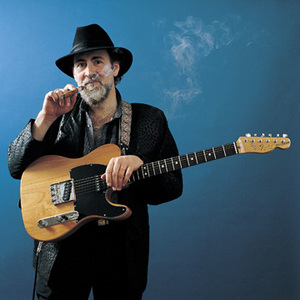
- Meta styles:
- Modern Electric Blues, Rock & Roll/Roots
- Styles:
- Blues-Rock, Modern Electric Blues
Roy Buchanan's (September 23, 1939 - August 14, 1988) musical career began in Pixley, California. His father was a sharecropper (not a Pentecostal preacher as Buchanan himself had claimed). Buchanan told how his first musical memories were of racially-mixed revival meetings his family would attend. "Gospel," he recalled, "that's how I first got into black music". He in fact drew upon many disparate influences while learning to play his instrument (although he later claimed his aptitude was derived from being "half-wolf").
He initially showed talent on the steel guitar before switching to the standard instrument in the early 50's.
In 1957, Buchanan made his recording debut, playing the solo on Dale Hawkins' "My Babe" for Chicago's Chess Records. Three years later, Buchanan headed north to Canada, where he took charge of the guitar role in Ronnie Hawkins' band (a group later to gain fame as The Band). The group's guitar player, Robbie Robertson, studied guitar under Buchanan, and took over the lead guitar spot when Buchanan left the group.
The early 60's found Buchanan performing numerous gigs as a sideman with multiple rock bands, and cutting a number of sessions as guitarist with musicians such as Freddy Cannon and Merle Kilgore.
Buchanan's 1962 recording with drummer Bobby Gregg, "Potato Peeler", first introduced the trademark Buchanan pinch harmonics. An effort to cash in on the British Invasion caught Buchanan with The British Walkers. In the mid-'60's, Buchanan settled down in the Washington, DC area, playing as a sideman before starting his own groups. One of these groups was called The Snakestretchers, an allusion to Buchanan's disdain for the vagaries of the band experience. The Snakestretchers became a semi-permanent combo for Buchanan starting in this period, with whom he made his first acclaimed recording as a front man, Roy Buchanan & the Snakestretchers. Danny Gatton was another respected Telecaster master who lived in Washington, D.C. at that time. Both musicians gained reputations as under-appreciated guitarists.
In 1971, riding on word-of-mouth reputation that included praise from John Lennon, Eric Clapton, Merle Haggard, and an alleged invitation to join The Rolling Stones, Buchanan gained national notoriety as the result of an hour-long Public broadcasting television documentary. Entitled "The Best Unknown Guitarist In The World", the show rejuvenated a contract with Polydor and began a decade of national and international touring. He recorded five albums for Polydor (one went gold) and three for Atlantic Records (one gold), while playing most major rock concert halls and festivals. Finally, Buchanan quit recording in 1981, vowing never to enter a studio again unless he could record his own music his own way.
Four years later, Buchanan was coaxed back into the studio by Alligator Records. His first album for Alligator, When a Guitar Plays the Blues, was released in the spring of 1985. It was the first time he was given total artistic freedom in the studio. It was also his first true blues album. Fans quickly responded, and the album entered Billboard's pop charts and remained on the charts for 13 weeks. Music critics, as well as fans, applauded Roy's efforts with favorable reviews.
His second Alligator LP, Dancing On the Edge, was released in the fall of 1986. The album, featuring three songs with special guest, rock'n'soul vocalist Delbert McClinton, won the College Media Journal Award for Best Blues Album of 1986.
He released the twelfth LP of his career and his third for Alligator, Hot Wires, in 1987. In addition to Donald Kinsey (formerly with Albert King and Bob Marley), keyboardist Stan Szelest, and Larry Exum (bass) and Morris Jennings (drums), this album includes guest vocals by veteran soul singer Johnny Sayles and blues singer Kanika Kress.
Buchanan died August 14, 1988 in the Fairfax County, Virginia jail while being held after an arrest for public drunkeness. His death was ruled a suicide, although that finding has been disputed by friends and family.
- Sort by
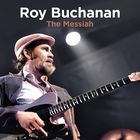
The Messiah
- Year:
- 2023
- Tracks:
- 14
- Bitrate:
- 320 kbps
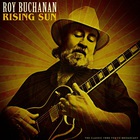
Rising Sun: The Classic 1986 Tokyo Broadcast
- Year:
- 2022
- Tracks:
- 9
- Bitrate:
- 320 kbps
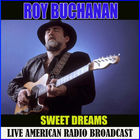
Sweet Dreams (Live)
- Year:
- 2020
- Tracks:
- 11
- Bitrate:
- 320 kbps
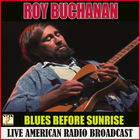
Blues Before Sunrise (Live)
- Year:
- 2020
- Tracks:
- 11
- Bitrate:
- 320 kbps
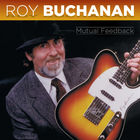
Mutual Feedback
- Year:
- 2018
- Tracks:
- 6
- Bitrate:
- 320 kbps
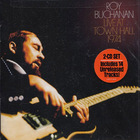
Live At Town Hall 1974 CD2
- Year:
- 2018
- Tracks:
- 9
- Bitrate:
- 320 kbps
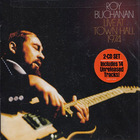
Live At Town Hall 1974 CD1
- Year:
- 2018
- Tracks:
- 12
- Bitrate:
- 320 kbps
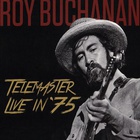
Telemaster Live In '75
- Year:
- 2017
- Tracks:
- 8
- Bitrate:
- 320 kbps
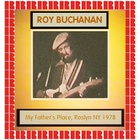
At My Father's Place, New York 1978
- Year:
- 2015
- Tracks:
- 17
- Bitrate:
- 320 kbps
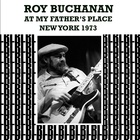
At My Father's Place, New York 1973
- Year:
- 2015
- Tracks:
- 10
- Bitrate:
- 320 kbps
 Dale Hawkins 8
Dale Hawkins 8 Eric Clapton 195
Eric Clapton 195 Jeff Beck 51
Jeff Beck 51 Jeff Healey 8
Jeff Healey 8 John Mayall 136
John Mayall 136 Johnny Winter 94
Johnny Winter 94 Paul Butterfield 21
Paul Butterfield 21 Ronnie Hawkins 8
Ronnie Hawkins 8 Stevie Ray Vaughan 74
Stevie Ray Vaughan 74 The Allman Brothers Band 216
The Allman Brothers Band 216 The Fabulous Thunderbirds 26
The Fabulous Thunderbirds 26 Delbert McClinton 27
Delbert McClinton 27 Michael Bloomfield 9
Michael Bloomfield 9 Bonnie Raitt 31
Bonnie Raitt 31 Canned Heat 62
Canned Heat 62 Cream 40
Cream 40 Duane Allman 12
Duane Allman 12 Duke Robillard 28
Duke Robillard 28 Edgar Winter 22
Edgar Winter 22 Gregg Allman 24
Gregg Allman 24 J.J. Cale 38
J.J. Cale 38 Jesse Ed Davis 7
Jesse Ed Davis 7 Jimi Hendrix 172
Jimi Hendrix 172 Little Feat 95
Little Feat 95 Mason Ruffner 6
Mason Ruffner 6 Peter Green 29
Peter Green 29 Ry Cooder 65
Ry Cooder 65 Steve Miller 7
Steve Miller 7 Ten Years After 68
Ten Years After 68 Rolling Stones 4
Rolling Stones 4 Yardbirds 3
Yardbirds 3 Albert King 69
Albert King 69 Rory Gallagher 109
Rory Gallagher 109 The Prime Movers 3
The Prime Movers 3